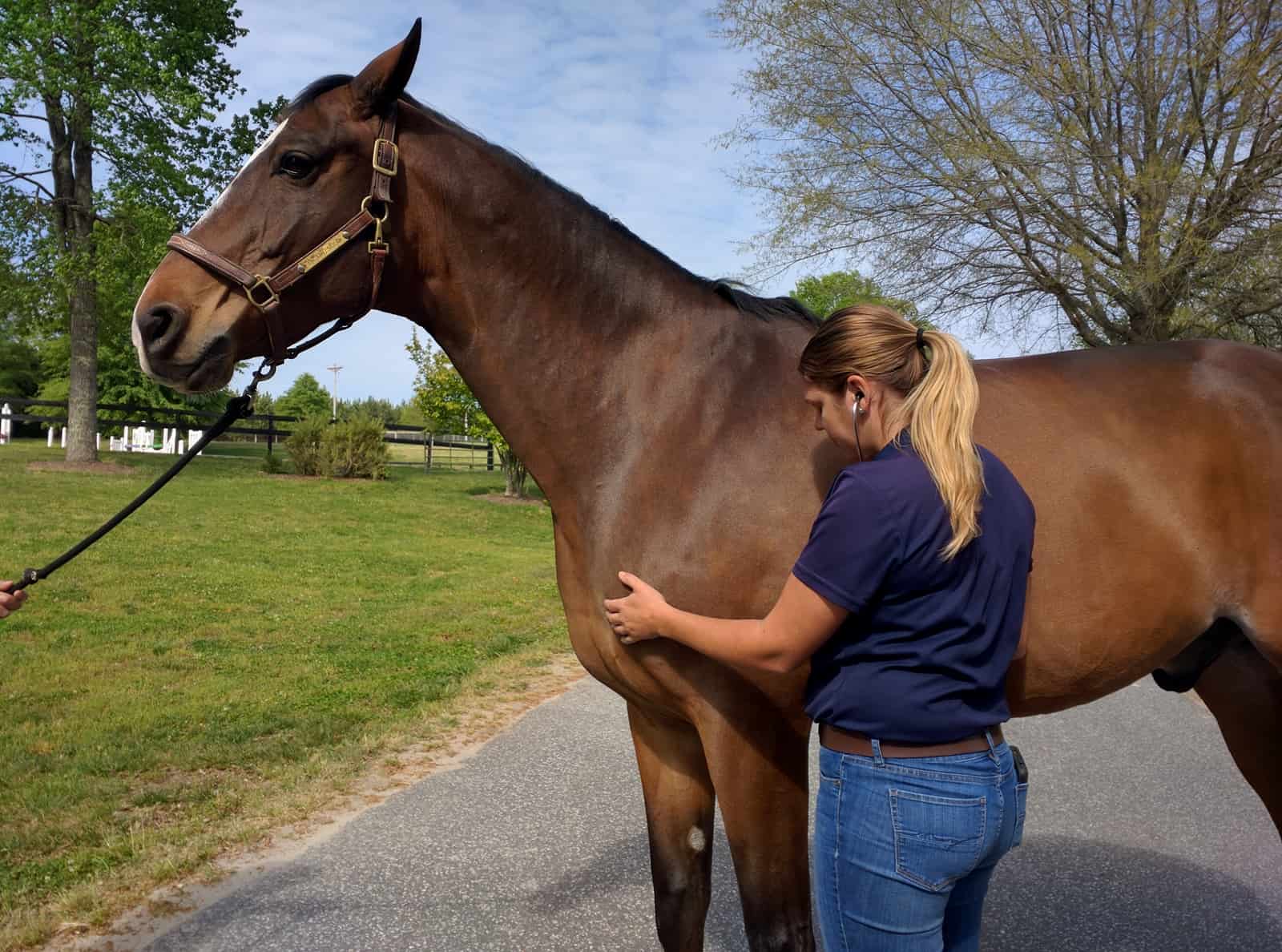Prepurchase Exams for Horses: What to Expect

Finding your next horse often requires great investment of both time and money. When you have finally found “the one,” you have one more critical step to take before you sign the check and load the horse onto the trailer: the veterinary or prepurchase exam. The prepurchase exam is a thorough evaluation of the horse’s health, soundness, and suitability that veterinarians can use to provide the buyer with the most information possible to help guide their decision. The prepurchase exam includes five steps: a history, the physical exam, the moving exam, imaging, and other ancillary tests.
Step 1: Getting the History
The first step of the prepurchase exam involves the veterinarian obtaining important information from both the buyer and the seller. The buyer should be clear in the intended use of the horse. For example, if the potential owner is purchasing the horse as an investment for resale, the expectations differ from those of rider looking for an aged schoolmaster. The veterinarian will ask the seller to provide the horse’s detailed history, including:
- Medical history;
- Routine healthcare;
- Current level of work/training; and
- Performance record.
This is important to help the veterinarian assess the horse’s suitability as well as predisposition to injury or illness
Create a free account with TheHorse.com to view this content.
TheHorse.com is home to thousands of free articles about horse health care. In order to access some of our exclusive free content, you must be signed into TheHorse.com.
Start your free account today!
Already have an account?
and continue reading.
Written by:
Meghan Breen, DVM
Related Articles
Stay on top of the most recent Horse Health news with















